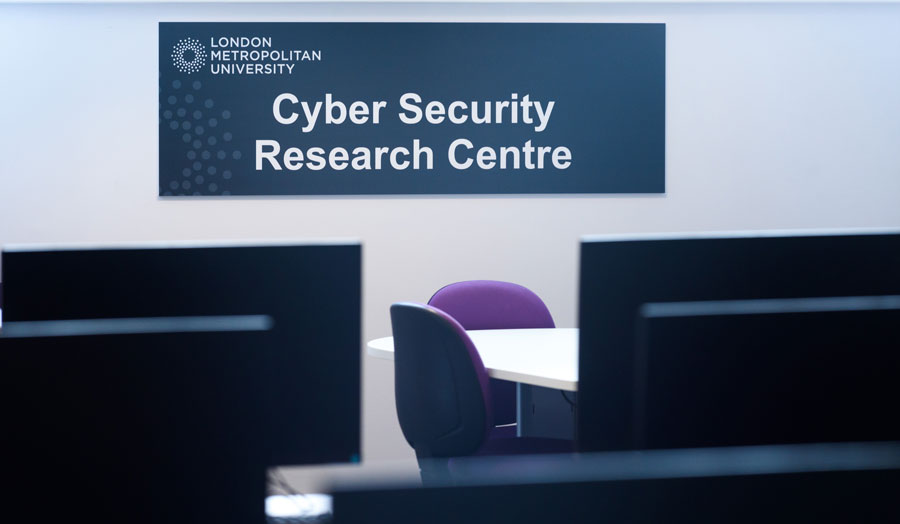Cyber Security student Dipo Dunsin has been hired to advance the project as part of London Met's commitment to providing students with valuable work experience for their future careers.
Date: 26 May 2021
London Met is set to develop a new Digital Forensics Laboratory (DFL), which will run as part of the University’s Cyber Security Research Centre, led by the Centre’s Deputy Director, Mohamed Chahine Ghanem, and Director, Professor Karim Ouazzane.
Cyber Security MSc student Dipo Dunsin has been hired as a Digital Forensics Analyst to propel the project along, as part of London Met’s commitment to providing students with valuable work experience opportunities which they can carry with them in their future careers.
He said, "I believe it's essential that students get real-life work experience as part of their degrees before entering the job market. When it comes to Digital Forensics, most hiring managers are more interested in employee technical know-how and how they are keeping abreast with industry developments.
"At the DFL, one of the things we do is maintain documentation on the many tools we have and understand the technical know-how. We are, however, using these tools to conduct day-to-day forensic investigations, assess the framework, and investigate how to build intelligent software agents that can collaborate and reduce the time it takes to carry out forensic investigations.
"We're looking into what makes Python a viable choice for digital forensics. Its interoperability and seamless interaction with other agents, such as the Java-based Python implementation, which is based on a Python interpreter that converts Python code into Java bytecode before execution. I would advise any London Met student or graduate ready to gain work experience in Digital Forensics to check on some of our ongoing projects.
Asked about his experience of working alongside established academics, Dipo said, "The ability to work alongside Dr Mohamed Chahine Ghanem and Professor Karim Ouazzane, while at the same time working on my MSc project, is phenomenal. It has been an incredible experience having the opportunity to work on my dissertation using some of the most innovative cutting-edge digital forensics tools and to be a part of the professional team that established the London Met Digital Forensic Laboratory.
"Every day at work is something new with these two individuals. If I'm not reviewing a new tool, I'm generally documenting the framework or working with other team members to set up the configuration."
Following the award of an £8000 grant, the DFL is being set up in response to worrying increases in cybercrime, which overload the law-enforcement forces and push them to only process the most serious cases. In addition, SME and law firms with no dedicated digital forensics staff are struggling with accessing competent and skilled service providers in digital forensics.
London Met’s DFL will provide professional services in Digital Forensics and Incident Investigation for SMEs, law firms and private clients. It will be equipped with the resources and facilities required to securely acquire and analyse digital evidence, in line with national standards.
It will also develop the capabilities of the Cyber Security Research Centre’s consultancy and research and provide an essential knowledge exchange platform that will allow students as researchers and collaborators to learn and understand how cybercrime evolves, and propose efficient solutions and frameworks to investigate it.
The DFL is currently in its setting up phase, and is expected to be up and running by Spring 2022.

